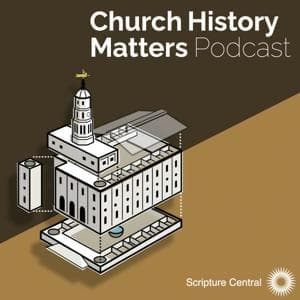This week, McKay invites listeners to join him in exploring the concept of destiny, and how it is a precious gift available to each and every one of us. Seizing this opportunity here today, our learned host encourages us all to believe in our destiny as a powerful catalyst for transformation that offers a pathway to a more purpose-driven and fulfilling existence.
McKay begins by delving deeply into the life of James Garfield, the 20th President of the United States, examining how destiny played a pivotal role in his remarkable story, and goes on to explore themes of resilience, self-belief, and the profound impact of embracing one's destiny. From a life-altering accident to finding purpose and success, this episode demonstrates that recognizing and embracing your destiny can rewrite the script of your life. The episode also underscores that age is no barrier to realizing your destiny, citing inspiring stories of such notable individuals as Tiger Woods, Julie Andrews, and Nelson Mandela, who discovered their destinies at various stages in life. As McKay urges, do not let your opportunity pass you by—know that your destiny is well within your reach, understand that it might just be the driving force you need to transform your life, and take steps today to make it a reality.
Episode Highlights:
- The concept of destiny and how it shapes our lives
- Some examples of the role destiny has played in people’s lives
- The power of believing in one's destiny and the potential for transformation
- Destiny unveiled in the midst of adversity
- The power of words in shaping destiny
- Age is no barrier to destiny
- Your destiny awaits
Quotes:
"Providence only could have saved my life,’ he wrote years later, struggling to understand all that had happened to him in the intervening years. ‘Providence, therefore, thinks I am worth saving.’"
"When you give yourself to that feeling, to that destiny, you will find you. It will enrich and bring more meaning into your life."
"But every day, in every walk of life, ordinary people do extraordinary things. You have a destiny, and you are extraordinary."
"Regardless of our poor choices or mistakes or our past, we can change and choose the path that leads to our destiny."
"There are men and women who make the world better just by being the kind of people they are."
"Don't say, ‘I'm too old.’ Don't say, ‘I'm too young.’ You're not too young, too old, too far behind, too late, or too early to take your steps towards your destiny."
"For I know what you have done, and I have opened a door for you that no one can shut." -
"Destiny can manifest in the everyday lives of ordinary people who make a positive impact through their kindness, courage, loyalty, and integrity."
"In a world full of uncertainty and challenges, this episode reminds us that destiny is within reach for everyone."
"Your destiny is a journey worth taking, and it begins with believing in yourself."
Links:
https://www.mckaychristensen.org/




































